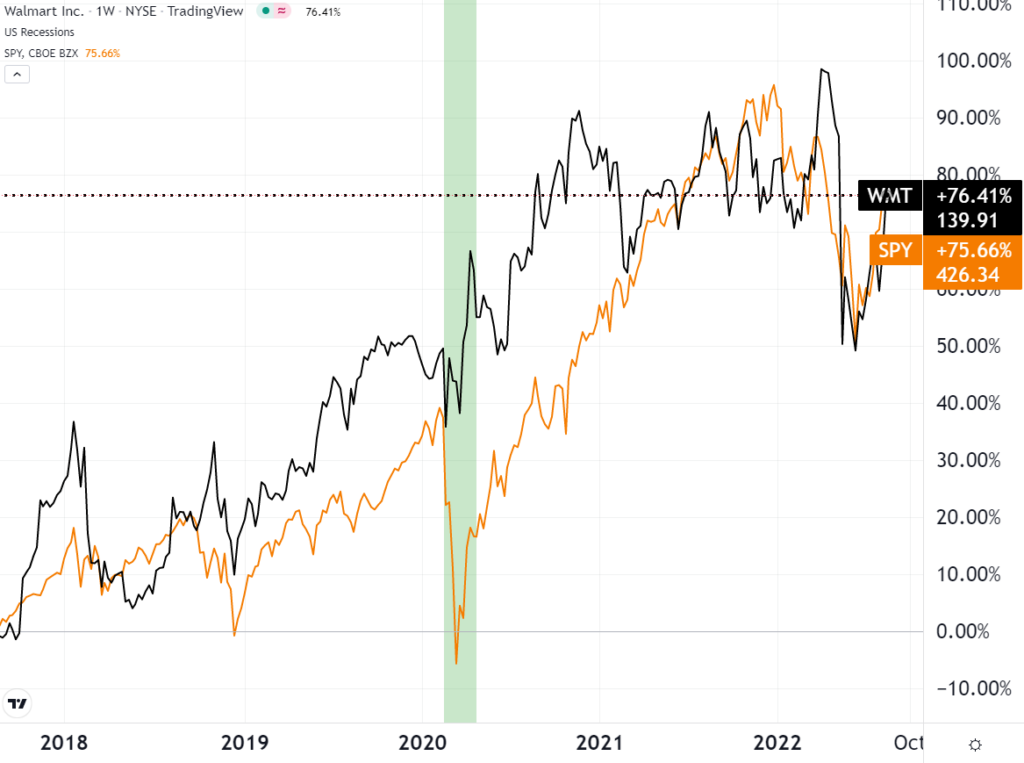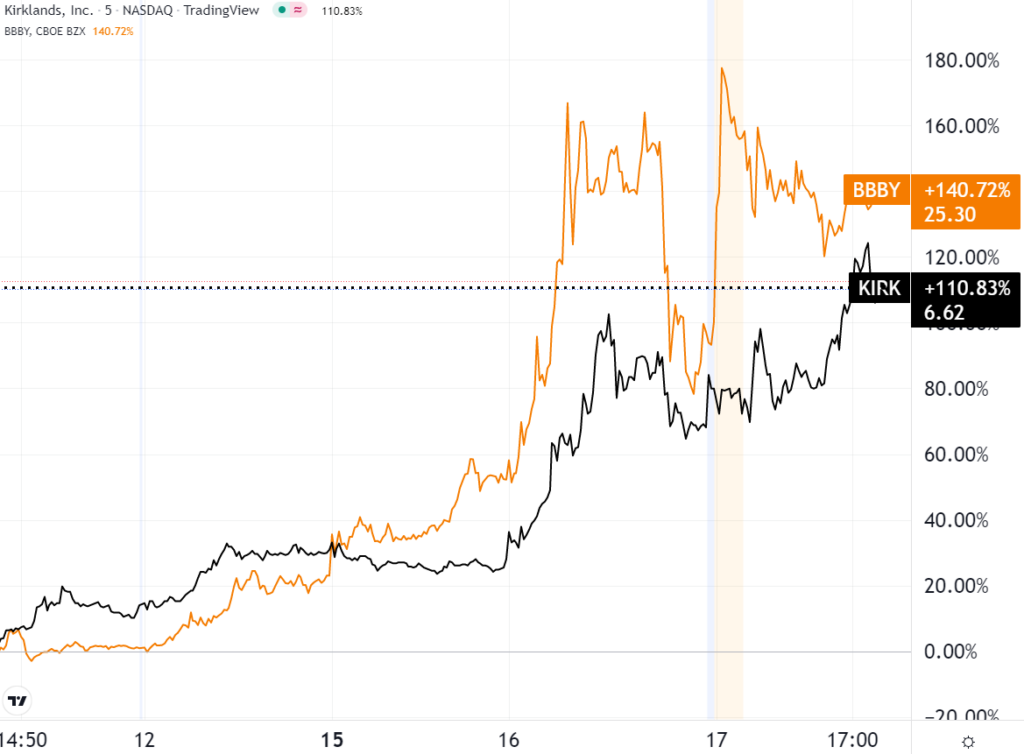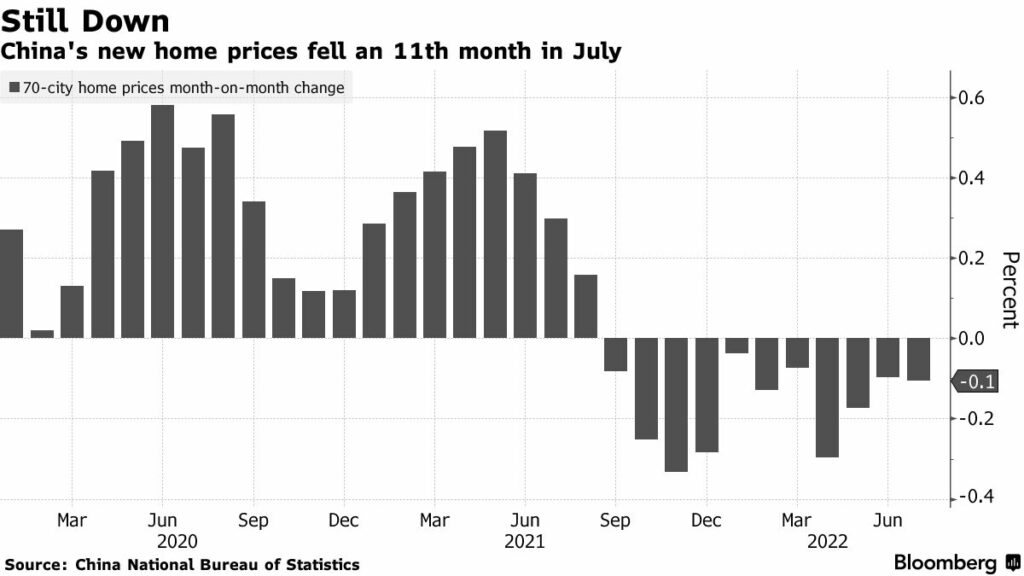Walmart (NYSE:WMT) has beaten the S&P 500 index in each of the past five US recessions.
US real retail sales are down -1.1% over the last 6 months. Simultaneously, total US household debt rose by $312 billion in Q2, now at $16.15 trillion, which is $2 trillion higher than pre-2020 lockdowns.
Both of these data points point to inflation rapidly chewing up people’s buying power, which inevitably leads to a recession-cooled economy. However, recessions are nothing new, and so are the equities most likely to weather them.
Recession-Proof Retail Stocks?
According to a survey by Allianz Life Insurance Company of North America, 82% of Americans are anxious about their purchasing power in the next six months. Likewise, 65% said they are not comfortable engaging markets due to Fed-induced risks.
However, as household budgets tighten, it is inevitable that the flow of money is redirected into grocery stores, dollar stores, warehouse stores, and mass discounters. After all, regardless of economic conditions, some services and products are prioritized all-year round.
Walmart Outperformed SPY During Past Recessions
In previous recessions, such essential retail stocks have even outperformed S&P 500. Walmart best exemplifies this trend, as the retail chain that checks all the recession boxes.

Outside Amazon (NASDAQ:AMZN), there is no greater discounter at scale than Walmart. Although Walmart warned its investors last month that shoppers were prioritizing necessities over high-margin merchandise, yesterday’s Q2 FY23 earnings showed a +8.4% increase in total revenue
At $152.86 billion, Walmart’s revenue beat estimates by $2 billion. Likewise, earnings per share jumped to $1.77 compared to the projected $1.62. Not only did Walmart increase same-store sales by 6.5%, but also boosted its e-commerce sales by 12% on an annual basis.
Indicatively, Walmart’s own brands, which typically don’t perform as well, have increased in sales because they are also cheaper. This points to consumer re-orientation to lower-quality goods. However, this left the retail chain with a +25.6% increase in Q2 inventory compared to a year prior.
Luckily for customers, Walmart is now in the process of canceling billions in profits just to get rid of the inventory ahead of the Halloween season. To offset these losses and come on top, Walmart streamlined its shipping logistics by reducing the number of containers by more than half from Q1.
Overall, last week Walmart’s stock went up by +8.25%, leaving behind S&P 500 at +1.67%.
Consumer Discretionary vs Staple Stocks
During a recession, it usually pays to avoid stocks that are skittish about economic cycles. This includes leisure services, luxury products, restaurants, hotels, automotive, textile & apparel. As the consumer purchasing power gets diluted, it is followed by lowered demand for non-essentials.
On that spectrum, staple stocks like Costco (NASDAQ:COST), Dollar General (NYSE:DG), and Walmart are most likely to benefit from consumer budget re-orientation. In contrast, consumer discretionary stocks like Gap (NYSE:GPS), RH (NYSE:RH), Kohls (NYSE:KSS), and Target (NYSE:TGT) are usually in for a bad time.
With that said, there are exceptions in the form of meme stocks. While both Bed Bath & Beyond (NASDAQ:BBBY) and Kirkland (NASDAQ:KIRK) fall into discretionary spending, that doesn’t stop retail traders to go against the grain, i.e., against shorters.

However, such volatility should not be viewed as a long-term investing outlook. After all, when retail drives stocks this way, it is on the same level as investing in meme coins like DOGE or SHIBA. Both are akin to gambling, with a tiny portion of winners and the majority of bag holders.
Is a Global Recession Imminent?
Since the Great Recession of 2008, China has been investing twice as much in its real estate market as the US, with its value ballooning to $52 trillion in 2019. This led to Ponzi schemes, now leading to a regional banking crisis and mortgage boycotts, potentially affecting $222 billion worth of home loans, according to ANZ research.

Alongside the potential Chinese domino, electricity prices in Germany and France have jumped by over 1,000% in the last two years. After “sanctioning” Russia, the energy-crippled Europe is now suffering from a severe drop in retail sales and consumer confidence as well.
